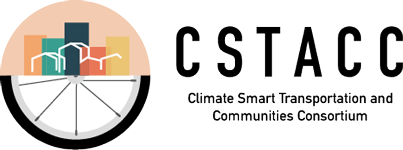The “Three Revolutions” (i.e., ridesharing, automation, and electrification) have the potential to reduce GHG emissions and local pollutants as much as 80 percent (Sperling, 2018; Greenblatt and Shaheen, 2015), but only if these three sets of innovations are integrated. Major car companies have announced plans to deliver fully automated vehicles in the next decade, all automakers are selling electric vehicles, and app-based pooled services (i.e., multiple riders dynamically paired to ride in one vehicle) are currently available from Lyft, Uber, and others. Integrating these transportation “revolutions” into a fleet of pooled, electric, and eventually automated vehicles has the potential to dramatically improve the mobility of disadvantaged travelers, reduce infrastructure costs and parking needs, reduce the cost of travel, and provide large environmental benefits. Rarely is society presented with such a large opportunity. Our research will focus on several key challenges in this area:
Three Revolutions Fleet Modeling
To frame the potential benefits and provide a mechanism for analyzing policy options, UC Berkeley and the Lawrence Berkeley National Laboratory (LBNL) will build on existing models to simulate the potential for pooled-ride services in two metropolitan areas, with a focus on low-income neighborhoods. This modeling exercise will feed into the projects and policy initiatives listed below.
Final Report: Bridging the Income and Digital Divide with Shared Automated Electric Vehicles
Low-Income On-Demand Transportation Pilot Program
Low income individuals are hampered from accessing innovative mobility services by a variety of factors, including geography, discrimination, and access to credit cards. UC Berkeley will conduct a pilot program with one or more on-demand transportation providers to identify barriers and opportunities and devise strategies and policies to expand usage of innovative mobility services by low income travelers.
Final Report: Strategies to Overcome Transportation Barriers for Rent Burdened Oakland Residents
On-Demand Transportation Electrification Policy
UCLA will analyze policy approaches to increase use of electric vehicles by TNC services, taking into account vehicle utilization and ownership and the need for a vastly expanded fast charging network. Evaluation criteria include efficacy, equity, funding viability, enforcement, and ease of administration.
Policy Development and Stakeholder Engagement
The Three Revolutions policy program at UC Davis will be expanded to provide insight on model policies to support electric, shared, and automated vehicles. Large numbers of policymakers and business leaders will be interviewed and surveyed to understand opportunities and constraints.
Final Report: California Automated Vehicle Policy Strategies
Agenda for Equity-Centered Clean Transportation
The study was inspired by California Governor Gavin Newsom’s Executive Order N-79-20 directing the state to require that, by 2035, all new cars and passenger trucks sold in California be zero-emissions vehicles, reinforcing California as the nation’s leader in reducing our carbon output and advancing policies that lay the groundwork for a more vibrant, inclusive green economy
Final Report: An Agenda for Equity-Centered Clean Transportation
